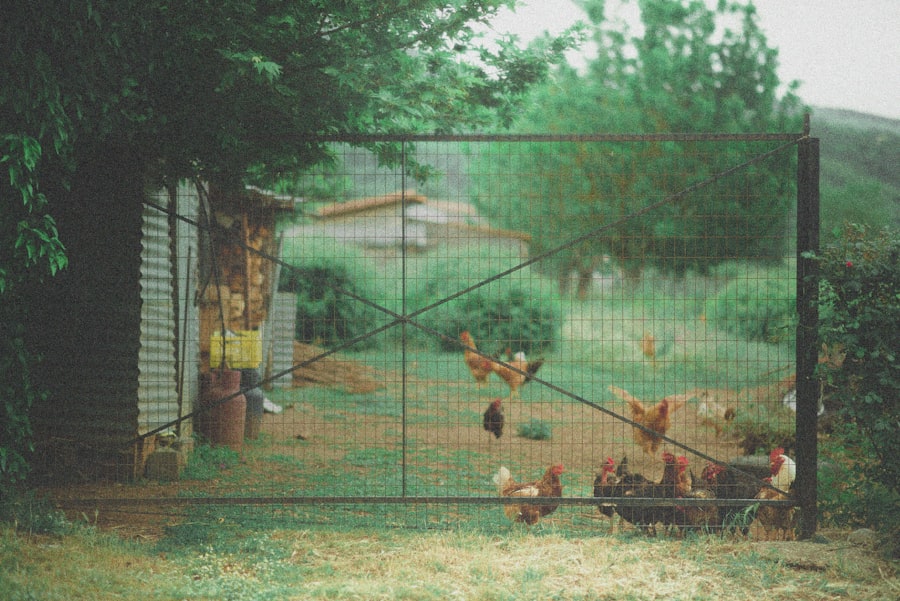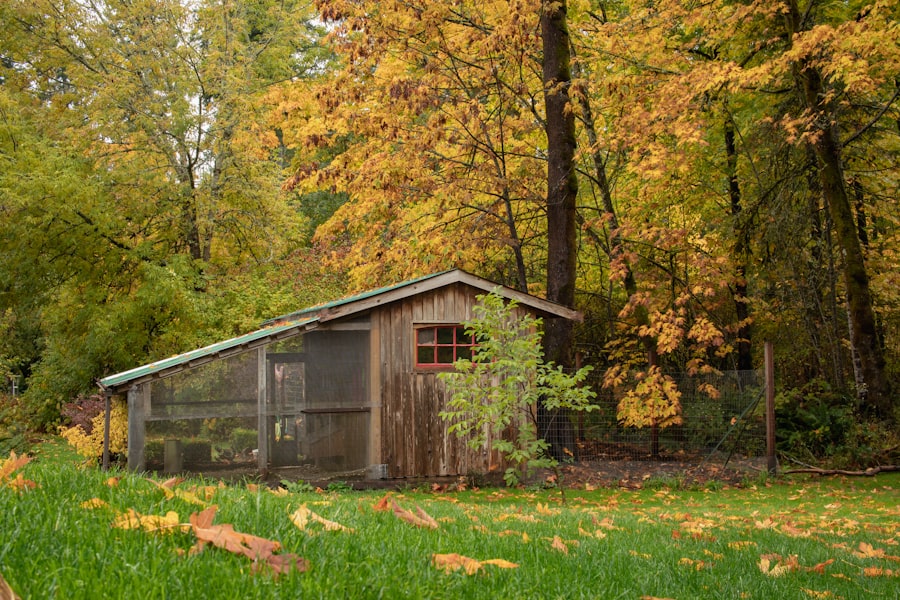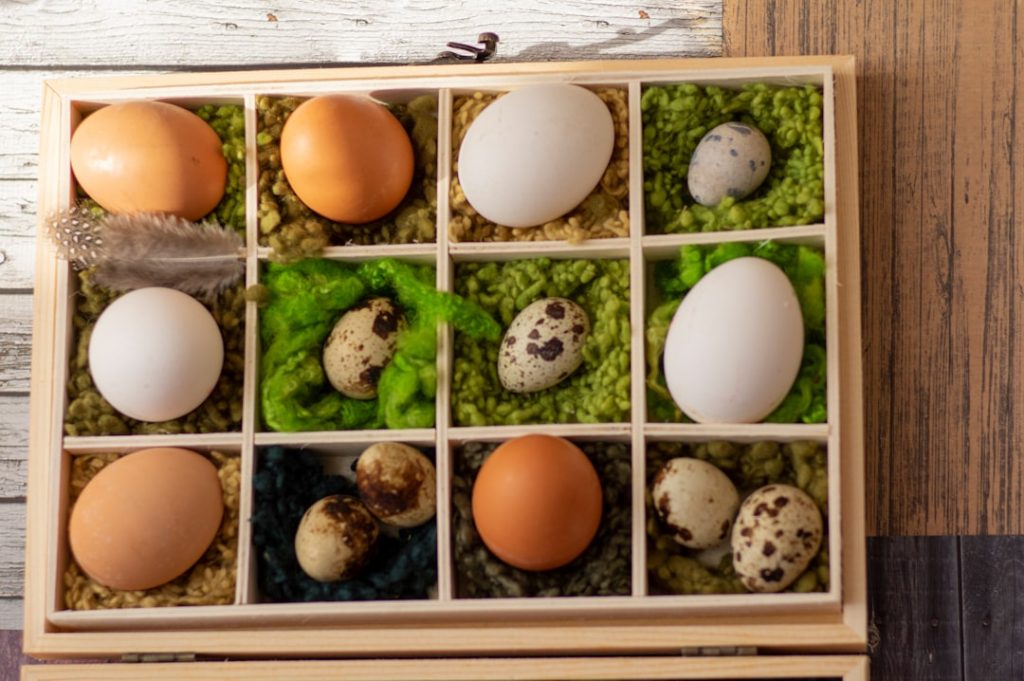When establishing a chicken farm, several initial costs must be considered. The primary investment is acquiring suitable land for the operation, which should be spacious enough to accommodate the planned number of chickens. Infrastructure costs include housing, equipment, and feeding and watering systems.
These expenses can be substantial and require careful budgeting and planning. Beyond physical infrastructure, the purchase of chickens represents another significant expense. The cost varies depending on the chosen breed and age of the birds.
Ongoing expenses such as feed and supplies must also be factored into the budget. Additionally, obtaining necessary permits and licenses for operating a chicken farm may incur further costs. It is crucial to develop a comprehensive budget that accounts for all these initial and ongoing expenses before launching a chicken farming venture.
This financial preparation helps ensure the operation’s viability and sustainability.
Table of Contents
Key Takeaways
- Initial Costs:
- Chickens can be relatively inexpensive to purchase, but initial costs for housing, equipment, and supplies can add up.
- Budget for items such as a coop, feeders, waterers, and bedding when getting started with chickens.
- Housing and Equipment:
- A secure and predator-proof coop is essential for keeping chickens safe and comfortable.
- Provide adequate space for the number of chickens you plan to keep, with nesting boxes and perches for roosting.
- Feeding and Watering:
- Chickens require a balanced diet of commercial feed, supplemented with kitchen scraps and occasional treats.
- Access to clean, fresh water is crucial for the health and well-being of chickens.
- Healthcare and Maintenance:
- Regular health checks and parasite control are important for keeping chickens healthy.
- Routine coop cleaning and maintenance are necessary to prevent disease and ensure a clean living environment for the chickens.
- Egg Production:
- Proper nutrition, lighting, and environmental conditions are key factors in maximizing egg production.
- Collect eggs regularly and provide nesting boxes with comfortable bedding to encourage laying.
- Breeding and Incubation:
- Consider the space and resources needed for breeding and incubating eggs if you plan to raise chicks.
- Research and prepare for the responsibilities of hatching and raising chicks if breeding is part of your chicken-keeping plans.
- Additional Considerations:
- Check local regulations and zoning laws before keeping chickens, as some areas have restrictions on backyard poultry.
- Consider the time and effort required for daily care, as well as the long-term commitment of keeping chickens.
Housing and Equipment
Choosing the Right Housing Option
When it comes to housing, there are several options to consider, including traditional chicken coops, free-range systems, and mobile chicken tractors. Each option has its own advantages and disadvantages, so it’s important to carefully research and consider which type of housing will be best for your farm.
Essential Equipment for a Healthy Flock
In addition to housing, you will also need to invest in equipment such as feeders, waterers, and heating or cooling systems. These items are essential for ensuring that your chickens have access to food, water, and a comfortable environment.
Investing in High-Quality Materials
It’s important to carefully consider the housing and equipment needs of your chicken farm and invest in high-quality, durable materials that will stand up to the demands of daily use. By doing so, you can ensure the health and comfort of your chickens, as well as the success of your operation.
Feeding and Watering

Feeding and watering your chickens is a critical aspect of running a successful chicken farm. Proper nutrition is essential for the health and productivity of your chickens, so it’s important to invest in high-quality feed that meets their dietary needs. Additionally, you will need to provide access to clean, fresh water at all times to ensure that your chickens stay hydrated and healthy.
When it comes to feeding your chickens, there are several options to consider. You can choose to purchase commercial feed from a reputable supplier, or you can mix your own feed using a combination of grains, protein sources, and supplements. It’s important to carefully research the nutritional needs of your specific breed of chickens and tailor their diet accordingly.
In addition to feed, you will also need to invest in feeders that are designed to minimize waste and keep the feed clean and dry. Watering systems are equally important for the health and well-being of your chickens. You will need to provide access to clean, fresh water at all times, so investing in high-quality waterers is essential.
Automatic waterers can help ensure that your chickens always have access to water, while also minimizing spills and waste. It’s important to carefully consider the feeding and watering needs of your chicken farm and invest in high-quality products that will support the health and productivity of your flock.
Healthcare and Maintenance
Maintaining the health of your chickens is essential for running a successful chicken farm. This includes regular healthcare maintenance such as vaccinations, deworming, and parasite control. Additionally, you will need to invest in regular maintenance of your chicken housing and equipment to ensure that everything is in good working order.
When it comes to healthcare, it’s important to work with a veterinarian who specializes in poultry care to develop a comprehensive healthcare plan for your flock. This may include regular vaccinations against common diseases such as Newcastle disease and infectious bronchitis, as well as deworming treatments and parasite control. Additionally, you will need to monitor your flock for signs of illness or injury and provide prompt treatment when necessary.
Regular maintenance of your chicken housing and equipment is also essential for the success of your farm. This may include regular cleaning and disinfection of the chicken coop, as well as repairs or replacements of any damaged or worn equipment. It’s important to invest in high-quality materials that are durable and easy to maintain, as this will help ensure the long-term success of your chicken farm.
Egg Production
Egg production is one of the primary goals of many chicken farms, so it’s important to understand the factors that can impact egg production and take steps to maximize productivity. The age and breed of your chickens can have a significant impact on their egg-laying capabilities, so it’s important to carefully select breeds that are known for their high egg production. Additionally, providing a comfortable environment with access to high-quality feed and clean water is essential for supporting healthy egg production.
In addition to providing a comfortable environment for your chickens, it’s important to carefully monitor their health and well-being to ensure that they are able to lay eggs consistently. This includes regular healthcare maintenance such as vaccinations and parasite control, as well as monitoring for signs of illness or injury. Additionally, providing a balanced diet that meets their nutritional needs is essential for supporting healthy egg production.
It’s also important to carefully collect and handle eggs to ensure their quality and safety. This includes providing clean nesting boxes for your hens to lay their eggs, as well as regularly collecting eggs to prevent them from becoming dirty or damaged. Proper storage and handling of eggs is also essential for maintaining their quality and safety for consumption.
Breeding and Incubation

Breeding and incubation are crucial components of a thriving chicken farm, particularly if you plan to expand your flock or sell chicks.
Selecting Quality Breeding Stock
When it comes to breeding, it’s essential to carefully select breeding stock that exhibits desirable traits such as high egg production, good health, and strong genetics. This may involve working with a reputable breeder or hatchery to acquire high-quality breeding stock for your farm.
Providing a Comfortable Breeding Environment
Once you have selected breeding stock, you will need to provide a comfortable environment for them to mate and lay fertilized eggs. This may involve providing separate breeding pens or areas where your breeding stock can mate without interference from other chickens. Additionally, you will need to carefully monitor the health and well-being of your breeding stock to ensure that they are able to produce healthy fertilized eggs.
Incubation and Hatching
Incubation is another critical aspect of breeding on a chicken farm. Once you have collected fertilized eggs from your breeding stock, you will need to carefully incubate them until they hatch into healthy chicks. This may involve investing in an incubator or broody hen to provide the necessary warmth and humidity for successful incubation. It’s important to carefully monitor the temperature and humidity levels during incubation to ensure that the eggs develop properly.
Additional Considerations
In addition to the primary aspects of running a chicken farm outlined above, there are several additional considerations that are important for the success of your operation. This may include marketing and selling your products, managing waste and environmental impact, and complying with local regulations and ordinances. Marketing and selling your products is an important aspect of running a successful chicken farm.
This may involve selling eggs or meat directly to consumers through farmers’ markets or community-supported agriculture programs, or working with local restaurants or grocery stores to sell your products. It’s important to carefully consider the best marketing strategies for your farm and develop a plan for reaching potential customers. Managing waste and environmental impact is also an important consideration for running a sustainable chicken farm.
This may involve implementing composting systems for manure and bedding materials, as well as managing runoff from your farm to prevent pollution of local water sources. It’s important to carefully consider the environmental impact of your farm and take steps to minimize any negative effects. Finally, complying with local regulations and ordinances is essential for running a legal and successful chicken farm.
This may include obtaining necessary permits or licenses for operating a farm, as well as complying with zoning regulations and animal welfare standards. It’s important to carefully research the legal requirements for operating a chicken farm in your area and ensure that you are in compliance with all applicable regulations. In conclusion, starting a chicken farm involves careful planning and consideration of several key factors.
From initial costs and housing needs to feeding, healthcare, egg production, breeding, and additional considerations such as marketing and environmental impact, there are many aspects to consider when starting a successful chicken farm. By carefully researching each aspect of running a chicken farm and developing a comprehensive plan for your operation, you can set yourself up for success in this rewarding venture.
If you’re considering keeping chickens, you may also be interested in learning about the cost of keeping guinea fowl. According to a recent article on PoultryWizard, guinea fowl can be a great addition to a backyard flock of chickens. To find out more about whether guinea fowl can live with chickens, check out this article.
FAQs
What are the initial costs of keeping chickens?
The initial costs of keeping chickens include purchasing the chickens themselves, a suitable coop, feeders, waterers, bedding, and other necessary equipment.
What are the ongoing costs of keeping chickens?
The ongoing costs of keeping chickens include purchasing chicken feed, bedding, and any necessary medical care.
How much does it cost to feed a chicken?
The cost of feeding a chicken can vary depending on the type of feed and the number of chickens being fed. On average, it can cost around $15 to $20 per month to feed a small flock of chickens.
What are the costs of medical care for chickens?
The costs of medical care for chickens can vary, but may include vaccinations, deworming, and treatment for common ailments. It’s important to budget for potential medical expenses when keeping chickens.
Are there any other costs associated with keeping chickens?
Other potential costs associated with keeping chickens may include predator-proofing the coop and run, purchasing supplemental lighting for winter months, and any additional equipment or supplies needed for specific breeds or purposes.

Meet Walter, the feathered-friend fanatic of Florida! Nestled in the sunshine state, Walter struts through life with his feathered companions, clucking his way to happiness. With a coop that’s fancier than a five-star hotel, he’s the Don Juan of the chicken world. When he’s not teaching his hens to do the cha-cha, you’ll find him in a heated debate with his prized rooster, Sir Clucks-a-Lot. Walter’s poultry passion is no yolk; he’s the sunny-side-up guy you never knew you needed in your flock of friends!
Meet Walter, the feathered-friend fanatic of Florida! Nestled in the sunshine state, Walter struts through life with his feathered companions, clucking his way to happiness. With a coop that’s fancier than a five-star hotel, he’s the Don Juan of the chicken world. When he’s not teaching his hens to do the cha-cha, you’ll find him in a heated debate with his prized rooster, Sir Clucks-a-Lot. Walter’s poultry passion is no yolk; he’s the sunny-side-up guy you never knew you needed in your flock of friends!







